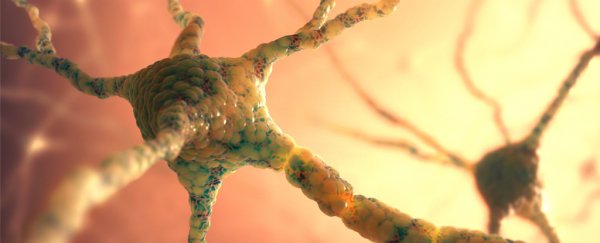A drug used to bolster the body's immune system in the fight against tumours has been found to reduce Alzheimer's-related symptoms in mice, including cutting the build-up of toxic amyloid plaques in the brain by half, and restoring certain memory functions.
While it's a long way from mouse models to humans, the finding is helping researchers unravel the incredibly complex relationship between our immune systems and the onset of dementia. In the past, researchers suspected that an overactive immune system could be to blame, but more recently, studies are suggesting the opposite could be true.
"The brain's immune system becomes over-activated in Alzheimer's disease, and there is a debate surrounding whether this activation is harmful, protective, or a bit of both," says Tara Spires-Jones from University of Edinburgh in the UK, who wasn't involved in the research.
"Many scientists believe that calming down the overactive brain system will be a useful treatment for the disease. However, drugs aimed at doing this, called anti-inflammatories, have not had much success in clinical trials."
The team, led by Kuti Baruch from the Weizmann Institute of Science in Israel, worked with what's known as the 5XFAD mouse model - mice that are genetically engineered to express high levels of a mutated version of the human amyloid precursor protein (APP). This protein is expressed in many tissues around the body, and is found in concentrated amounts in the synapses of neurons, but scientists are still not exactly sure what it does.
What we do know is that it's linked to the production of beta amyloid (Aβ), a sticky type of amino acid that clumps together to form the toxic amyloid plaques found in the brains of Alzheimer's disease patients. The 5XFAD mouse models are engineered to express high levels of the five different mutated versions of the APP protein that have so far been found in people with Alzheimer's.
The mice were given a class of drugs called PD-1 immune checkpoint blockades, which are normally given to cancer patients to block a specific pathway that lowers immune system activity. In other words, the drug works by disabling checkpoints that the immune system sets up to stop itself from attacking healthy cells.
This might not sound great, but like chemo and radiotherapy, the only way to kill off cancer cells right now is to clear out a bunch of healthy cells too.
When the mice displaying Alzheimer's-related plaque build-up and memory loss were given the drugs, the plaques were cleared by up to 50 percent, and the mice regained the ability to make their way through a maze - an indication that some part of their memory function had been restored.
The results have been published in Nature Medicine.
While the findings are exciting - particularly as some PD-1 blockers are already on the market, which would make approval for human trials relatively quick and easy to get - there's an established history of Alzheimer's treatments working great in mice but not at all in humans.
"Previous treatments targeting the immune system that have shown promise in mice have failed to have the same effect in people. We're still a few years away from knowing whether this will hold promise for people with dementia," said Doug Brown, director of research and development at the UK Alzheimer's Society, who was not involved in the research.
But it's a new and promising avenue of research, and right now, Alzheimer's researchers need as many of those as they can get.
